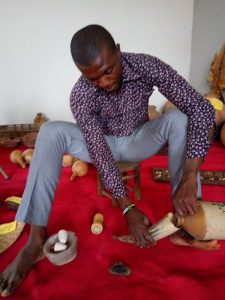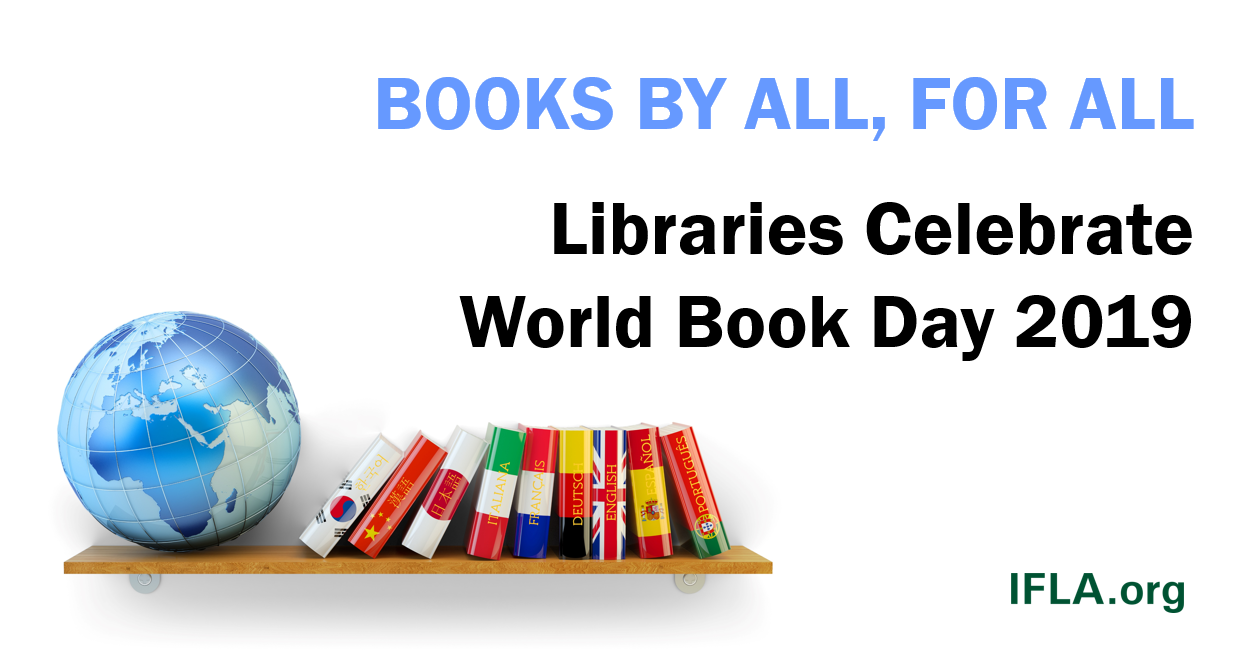International Mother Language Day (21 February) is an annual affirmation of the important role that cultural and linguistic diversity plays in building sustainable societies.
Cultural and linguistic diversity are fundamentally linked to freedom of expression and access information; they are at the heart of the promotion of cultural and educational rights.
If the availability of educational material, cultural expressions, scientific information, and artistic works do not reflect the linguistic diversity of the community, the possibility for all members in the community to meaningfully engage with, and to benefit from, this material is severely limited.
International Mother Language Day 2022
As the world looks to post-pandemic recovery, considering the lessons learned over the past two years, the opportunities and challenges of digital technologies has become a central theme. Ensuring opportunities associated with technological advances are available to all is an important element of upholding universal rights and freedoms concerning expression, access to information, and cultural participation.
With this in mind, UNESCO has named the following theme for International Mother Language Day 2022: “Using technology for multilingual learning: Challenges and opportunities”
UNESCO will take this opportunity to encourage a discussion on the role that technology has in advancing multilingual education and supporting the development of quality teaching and learning for all.
Audrey Azoulay, Director-General of UNESCO, addresses this theme in her message:
Technology can provide new tools for protecting linguistic diversity. Such tools, for example, facilitating their spread and analysis, allow us to record and preserve languages which sometimes exist only in oral form. Put simply, they make local dialects a shared heritage. However, because the Internet poses a risk of linguistic uniformization, we must also be aware that technological progress will serve plurilingualism only as long as we make the effort to ensure that it does.
Libraries are gateways to information and knowledge, as well as community-level nodes in connectivity infrastructure helping to bridge the digital divide.
Making cultural and linguistic diversity a pillar of library collection development, cultural heritage preservation, and library programming promoting diverse cultural expressions can help further the role of libraries as key partners in preserving and promoting linguistic diversity.
Libraries for Universal Access and Meaningful Connectivity
Discussions on how technological advances may benefit cultural and linguistic diversity must first address the key challenge of bridging the digital divide. Any opportunities that can be brought about by digital transformation will not successfully reach those who could perhaps benefit most without addressing gaps in digital access.
Libraries bring valuable solutions, practices and lessons-learned to internet governance policy dialogues that prioritise addressing the digital divide.
For example, one of the takeaway messages from the 2021 Internet Governance Forum in Katowice highlights the role of libraries in the discussions on universal access and meaningful connectivity:
Public access through institutions such as libraries can help deliver on all of the components of access that help drive development – equitable and inclusive connectivity, content and competences. The COVID-19 pandemic has demonstrated that countries had to prioritise the massive development of connectivity infrastructure to connect the unconnected to an increasingly digital world.
IFLA urges discourse on the role of digital technologies in upholding cultural rights and promoting multilingualism to examine gaps in the connectivity infrastructure. We encourage policymakers to look to libraries as knowledge partners who can help work towards universal access and meaningful connectivity.
Find out more, and how you can get involved in this work, here: Dynamic Coalition on Public Access in Libraries: Annual report and a look ahead to 2022
The role of Memory Institutions in Selection of Digital Materials for Long-term Preservation
To enable the enduring preservation of and access to cultural heritage, including in digital form, in line with the UNESCO 2015 Recommendation, steps must be taken to preserve digitised and born-digital materials.
This can be a practical application of upholding plurilingualism through cultural heritage preservation.
Reviewing policies that decide what digitised and born-digital materials are preserved serves an important role in upholding UNESCO’s call to ensure that technological progress serves plurilingualism.
There is a need to address the questions – what material is being digitised? Are these decisions reflective of the world’s rich cultural and linguistic diversity? Who is making these decisions, and, if applicable, are they being carried out with appropriate community consultation?
Selection Guidelines
A tool to aid these selection decisions is the recently launched 2nd edition of the UNESCO-PERSIST Guidelines for the Selection of Digital Heritage for Long-term Preservation.
These guidelines were created primarily for use by practitioners in cultural institutions who make the day-to-day decisions about which digital materials are candidates for long-term accessibility. They support practitioners in reviewing existing policies, highlighting important issues to consider, and providing guidance in drafting institutional policies.
The Guidelines stress that the material for collection that they refer to is intended to include digital content created by or about all ethnic, religious, gender, social, and political groups found in all regions of the world. The Content Task Force who created the Guidelines recommends that archives, libraries, and museums consult and collaborate with underrepresented communities when making selection decisions to ensure that documentary heritage created by and about these communities is identified for long-term digital preservation.
Access the Guidelines here in English, Spanish, and Arabic: 2nd Edition of the UNESCO/PERSIST Guidelines for the Selection of Digital Heritage for Long-Term Preservation.
Connecting Cultural and Linguistic Diversity to Sustainable Development
Agenda 2030 recognises the importance of education that promotes appreciation of cultural diversity, education for sustainable development, and recognition of culture’s contribution to sustainable development in Target 4.7:
By 2030 ensure all learners acquire knowledge and skills needed to promote sustainable development, including among others through education for sustainable development and sustainable lifestyles, human rights, gender equality, promotion of a culture of peace and non-violence, global citizenship, and appreciation of cultural diversity and of culture’s contribution to sustainable development.
Achieving this goal will not be possible without recognition of the key role that multilingualism plays in education for sustainable development.
This is being reflected more and more in international efforts to address global challenges through education, culture, and the arts.
Here are some key developments that could provide inspiration to reflect on the role of libraries in connecting cultural and linguistic diversity to sustainable development.
UNESCO Futures of Education Report
UNESCO’s Futures of Education initiative and recent report, Imagining our Futures Together: a new social contract for education, stresses the importance of promoting increased diversity in knowledge.
This includes linguistic diversity, diverse world views, and ways of knowing that have traditionally been left out of formal education, such as indigenous knowledge. The dimension calls for climate education to be prioritised in order to fundamentally reorient how the place of humans in the world is understood.
Read more about libraries in the Futures of Education Report: Libraries Contributing to a New Social Contract for Education.
International Decade of Indigenous Languages
The International Decade of Indigenous Languages will span 2022-2032, and calls for global action to preserve, revitalize, and promote the world’s Indigenous languages.
The recently launched Global Action Plan outlines and seeks to coordinate actions for national governments, indigenous peoples’ organizations, civil society, academia, the private sector and other actors.
The Action Plan includes much scope to involve librarians in this work, including the development of professional competencies for information and media professionals, including librarians, and carrying out of awareness-raising on the importance of including Indigenous language material in their work.
Find out more here: Global Action Plan of the International Decade of Indigenous Languages (2022-2032)
Libraries around the world are already carrying out programmes to involve their communities in preserving indigenous culture, including oral tradition. See just one of many examples from the Library Services for Saskatchewan Aboriginal people, in which Indigenous storytellers take part in the annual Saskatchewan Aboriginal Storytelling Month, held both in libraries and through online platforms in order to reach more people.
Stay tuned for more information from IFLA on how libraries can be involved in the International Decade.
Inspiring action through multiculturalism and multilingualism in the arts
Cultural and linguistic diversity, expressed through the arts and both through traditional and digital platforms, add critical voices to efforts to address humanities most urgent challenges, such as the climate emergency.
During the 26th UN Climate Conference (COP26), hosted in Glasgow in November 2021, the Climate Heritage Network officially launched the Climate Heritage Network Race to Resilience Campaign. This campaign calls for a scaling-up of efforts to use culture-based strategies to build climate resilience in our communities.
IFLA’s Secretary General, Gerald Leitner, joined the celebration to give a short address on the power of the written and spoken word in creating connections across cultures and finding solutions to humanity’s shared challenges:
Resilience requires connections. Connections to the past and the lessons it can teach us, but also connections between ourselves, binding us together. Connections enable us to mobalise to support each other, to understand one another’s experiences and values, to create and innovate in the way we face our common challenges. The written and spoken word provides one of the most effective ways we have to realise these connections. It moves, it forms, it enables actions at all levels. It should be available and accessible to everyone, because for culture-based strategies to enable us to build a more resilient world, they need to be inclusive. This is what libraries… look to achieve.
He went on to introduce the poet, filmmaker, and musician Rosanne Watt, who hails from the island of Shetland, Scotland. Her work is deeply connected to her homeland, a connection which she says she can express best through the Shetland dialect.
In this, she stressed the importance of Indigenous languages in bringing voices to climate action.
The use of digital platforms to enable remote participation enabled diverse voices to be brought to high-level COP26 events. Watch Rosanne perform poems in both English and the Shetland dialect on this occasion [YouTube].
To note: among the resources launched during COP26 in November 2021, Climate Heritage Network’s Working Group on Supporting Climate Action by Local Communities and Indigenous Peoples has launched a resource “Models of Supporting Climate Action by Local Communities and Indigenous Peoples” [access this resource here].
Get involved in the discussion!
The intersection of cultural rights with multilingualism and digital transformation will be among the topics explored at IFLA’s upcoming Resiliart x Mondiacult virtual event: Libraries enabling inclusive and meaningful participation in cultural life.
Join the conversation on Wednesday 23 February [15:00-16:50 CET]. More information and the link to register is available here: ResiliArt x Mondiacult at IFLA – Meet the Panel and Register Now!
 The collection grew through strong advocacy and documented oral history records from students of the department of LIS, Nnamdi Azikiwe University, Awka. These records were made available by the lecturer leading on teaching Oral Tradition in the Department, Mrs Amaka Nwofor.
The collection grew through strong advocacy and documented oral history records from students of the department of LIS, Nnamdi Azikiwe University, Awka. These records were made available by the lecturer leading on teaching Oral Tradition in the Department, Mrs Amaka Nwofor.